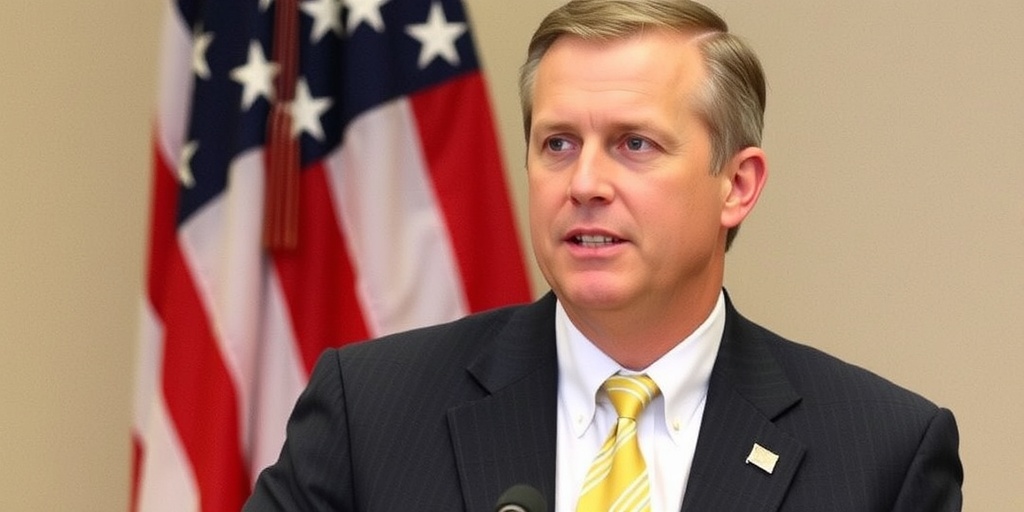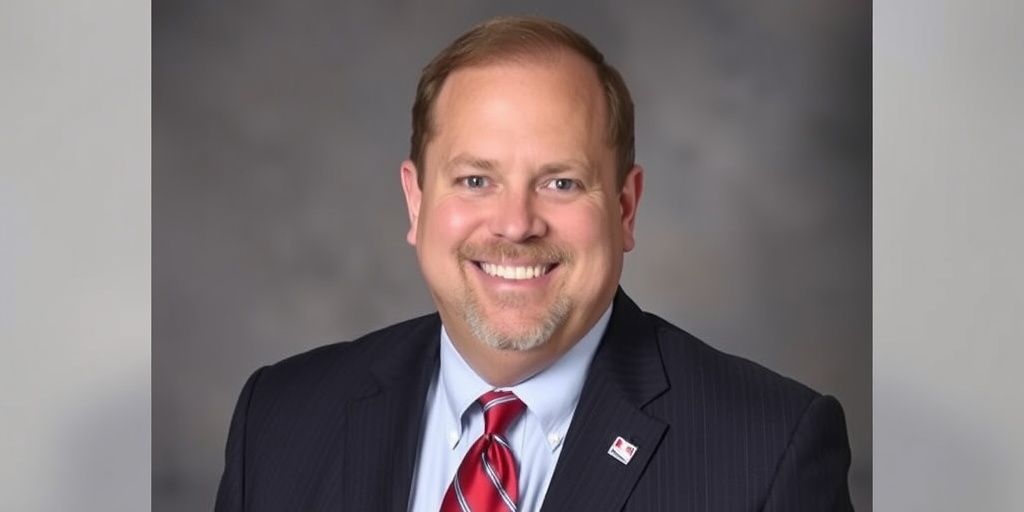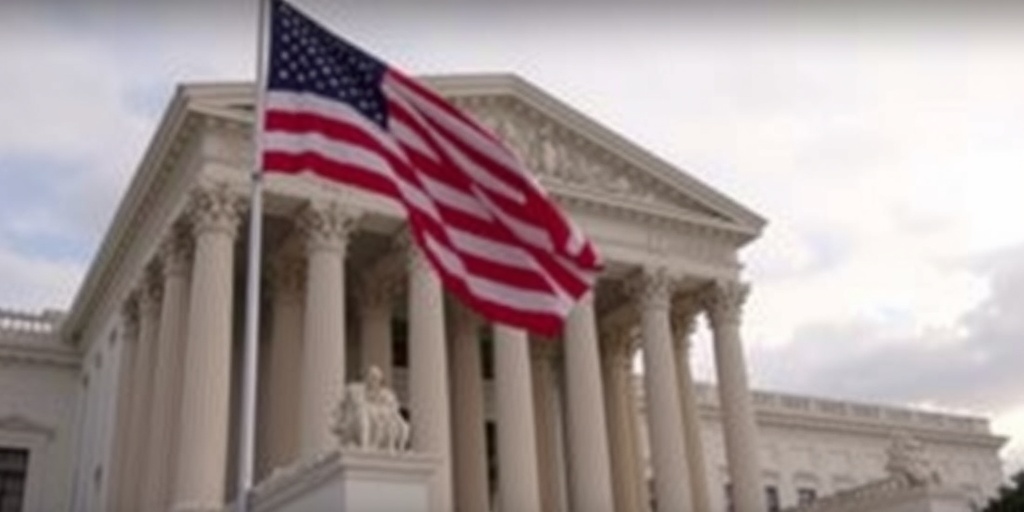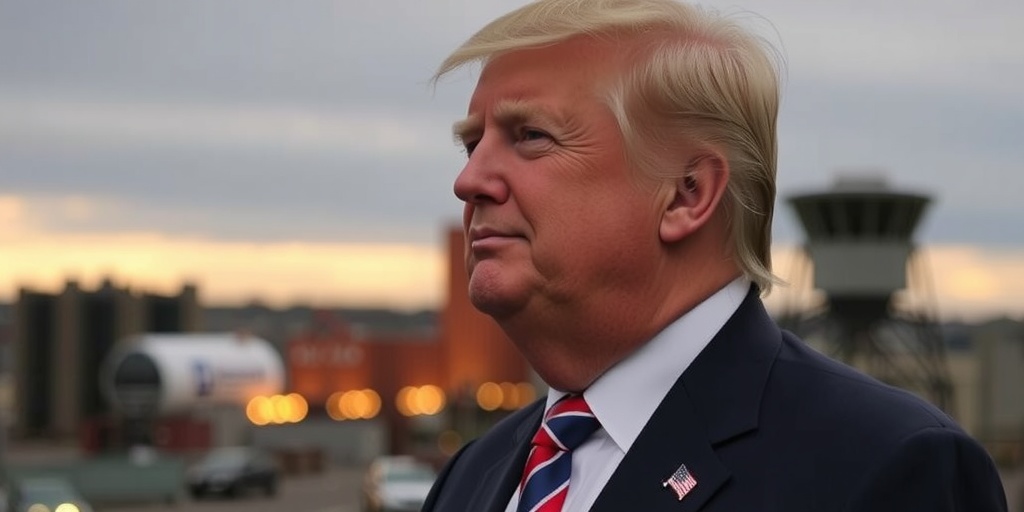Now Reading: Race for Mike Waltz’s Seat Shakes Up Republicans
-
01
Race for Mike Waltz’s Seat Shakes Up Republicans
Race for Mike Waltz’s Seat Shakes Up Republicans

Election Anxiety Grips Florida’s Sixth District as Voters Prepare for Crucial Special Election
As early voting commenced on Thursday in Daytona Beach, Florida, the political atmosphere was charged with concern and anticipation among local voters. Frank Curnow, a 77-year-old retired Navy veteran and staunch Republican, posed a critical question to the Republican Party volunteers at the polling site: Why were some polls indicating that the special election for the vacated congressional seat in Florida’s Sixth District was too close for comfort?
Curnow expressed unease at the thought of a tight race in what has historically been a Republican stronghold. "That’s not good," he remarked, emphasizing the importance of the upcoming election for the party’s candidate, State Senator Randy Fine, whom he supported due to his close alignment with former President Donald Trump’s agenda. For Curnow and many voters in this coastal district, which stretches from St. Augustine to Daytona Beach, preserving Republican representation is deemed critical.
The seat became available after former Representative Michael Waltz stepped down to become Trump’s national security adviser. Polls suggest that while Fine remains the favorite to win against his Democratic opponent, Josh Weil, a public school employee, there is a palpable tension among Republican supporters concerning the implications of the election for Trump’s ongoing political mission. Voters are acutely aware that maintaining their party’s House majority hinges on this contest and another for Matt Gaetz’s seat in the Florida Panhandle.
Doreen Colby, a 74-year-old registered Republican from Daytona Beach, echoed Curnow’s sentiment, emphasizing the need to retain the congressional seat as a means to support Trump’s policies. "It’s important that we keep the seats," she stated, underscoring the strategic value of the election for the party’s future.
Fine’s campaign, bolstered by Trump’s endorsement and significant financial backing, contrasts sharply with Weil’s more grassroots efforts, who has managed to raise nearly $10 million compared to Fine’s less than $1 million. Democratic strategists view the special election as an opportunity to express their frustration over the lack of effective opposition to Trump’s administration. Weil has positioned himself as a candidate who will prioritize expanding healthcare and education access, aiming to appeal to voters across the political spectrum, including those who might lean conservative.
In a demonstration of grassroots activism, Marcia Hopkins, a 63-year-old voter, shared how her commitment to the election prompted her to offer rides to the polling place to her neighbors, highlighting an urgent drive among Democratic voters to challenge the status quo. Randolph Fine’s campaign has received considerable financial support, and outside Republican groups have escalated their advertising efforts in a bid to secure the win in the district, which Trump carried by a substantial margin.
Despite this, the race is not without its challenges for Fine. Several prominent Republicans, including Stephen K. Bannon, have voiced doubts about Fine’s prospects, suggesting he may not garner the support typical for Republican candidates in the district. Meanwhile, Trump weighed in with a telephone town hall meeting aimed at galvanizing Republican voters, emphasizing the election as pivotal for his administration’s future.
Fine’s reliance on Trump’s popularity, however, presents a double-edged sword. While the former president’s loyalists rally behind Fine in anticipation of continued support for Trump’s policies, his competition in Weil has demonstrated that Democratic efforts are mobilizing in reaction to perceived complacency within Republican circles.
Interestingly, while Fine might be struggling to resonate with all corners of his party, many supporters express satisfaction with Trump’s governance, particularly praising his immigration policies and administrative cuts. As lifelong Republicans assert their commitment to support Fine to send a resounding message that they endorse Trump’s tenure, Weil stands ready to define his candidacy as one of responsive governance.
Although the backdrop of the race included issues like Waltz’s accidental inclusion of sensitive military plans in a group chat, the prevailing sentiment seems to be focused on other pressing matters rather than the fallout from past mistakes. For voters like Michelle Moyer, who identifies with Fine’s policies aligned with Trump, the primary concern remains filling the seat with a candidate who embodies their values.
As the November elections approach, the implications of the results in Florida’s Sixth District extend beyond local concerns, reflecting broader national sentiments within the Republican Party and potential shifts in public opinion towards Trump. With both parties strategizing furiously for the outcome, the impending election could prove a litmus test not just for Fine, but also for the prevailing winds of American politics in the wake of Trump’s divisive presidency.
With the stakes high and the mood charged, all eyes will be on this election as a potential bellwether for future congressional races across the nation.
Stay Informed With the Latest & Most Important News
Previous Post
Next Post
-
 01New technology breakthrough has everyone talking right now
01New technology breakthrough has everyone talking right now -
 02Unbelievable life hack everyone needs to try today
02Unbelievable life hack everyone needs to try today -
 03Fascinating discovery found buried deep beneath the ocean
03Fascinating discovery found buried deep beneath the ocean -
 04Man invents genius device that solves everyday problems
04Man invents genius device that solves everyday problems -
 05Shocking discovery that changes what we know forever
05Shocking discovery that changes what we know forever -
 06Internet goes wild over celebrity’s unexpected fashion choice
06Internet goes wild over celebrity’s unexpected fashion choice -
 07Rare animal sighting stuns scientists and wildlife lovers
07Rare animal sighting stuns scientists and wildlife lovers





















